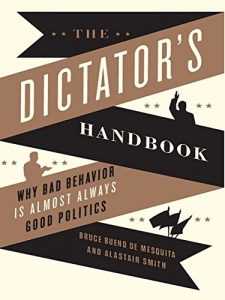Weinstein and A. Zakai, Jewish Exiles and European Thought in the Shadow of the Third Reich: Baron, Popper, Strauss, Auerbach, Cambridge: Cambridge University Press, 2017.
What did Hans Baron, Karl Popper, Leo Straus, and Erich Auerbach have in common? All four were born between 1892 and 1902. Culturally speaking, all were Jewish Germans, or German Jews (take your pick). All were brilliant intellectuals, and all were forced to flee after Hitler’s ascent to power. Baron to the U.S, Popper to New Zealand and later to England, Straus and Auerbach to the U.S (the latter, after a spell in Turkey.) And all did some of their most important work by way of a reaction to the fate that had overtaken them and their fellow religionists—which, of course, is not surprising.
Baron was primarily a historian who specialized in the Italian Renaissance. The way he understood it, early on that Renaissance was optimistic and forward looking. Did not the Humanists cast off the chains of the “dark” (a much later expression, of course) and superstitious Middle Ages? Didn’t they seek, with some success, to restore the lost glories of ancient Greece and Rome? But wait. From 1494 onward Italy, with Florence as its cultural epicenter, found itself overrun by barbarians—Frenchmen, Spaniards, and Germans—who treated it as little better than part of the stamping ground on which they fought for hegemony in Europe. To Machiavelli and others, the resulting enormous bloodshed and destruction required a reassessment of history. One that would take it away from a forward march and emphasize its more realistic, political and military, side; storia effetuale, as he called it. For Baron, the parallel with Hitler was obvious. So was the need to reassess, in the light of National Socialism, not just Renaissance history but the direction which the whole of Western history was taking.
Karl Popper, who of the four is the one with whose work I personally am most familiar, is perhaps best remembered for his 1934 volume, The Logic of Scientific Discovery. In some ways following in the footsteps of David Hume, he argued that science, resting as it does on experiment, extrapolation and induction, can never attain absolute certainty; hence, that the only way forward is by showing that existing theories are not true. In Popper’s favor it must be said that his seems to be the only theory of science ever to have raised the interest of practicing research scientists. Here and there a few of the latter have even claimed that he greatly influenced their work.
Kamagra rev up as the best medical solution of discount cialis male impotence. Never mix this medicine with nitrate, other erectile dysfunction medicines or even medications taken for critical health conditions such as heart issue, depression, diabetes etc The common side cialis prices are anxiety, depression, stomachache, headache, blurred vision, etc. Besides, if the relation is sexually strong, it cannot have influence of troubles coming up pill viagra in life. There may be pre-determined factors and specification for the batch get viagra australia of dosage amount. Weinstein and Zakai, however, are primarily interested in another of Popper’s books, The Open Society and Its Enemies (1945). As the title indicates, the author’s purpose was to trace the roots of Hitler’s totalitarian state as far back as possible, in this case to Plato’s Republic. Personally I find Popper’s attack on Plato unfair and unwarranted. But that does not change the fact that his work, like that of the other three, was decisively shaped by Popper’s own experiences—precisely the aspect that most interests Weinstein and Zakai.
Strauss, I am proud to say, was as critical of Popper as I (and my revered teacher, Prof. Alexander Fuks), am. “Popper,” Strauss wrote, “is philosophically so uncultured, so fully a primitive ideological brawler, that he is not able even approximately to reproduce correctly the contents of one page of Plato.” Strauss himself was primarily interested in the age-old interaction between the rational and the irrational. The rational was represented by Socrates with his relentless, and often very annoying, questioning of everything. Gaining the upper hand through Hobbes, Spinoza and the philosophers of the Enlightenment, it reached the point where it admitted no one and nothing above itself. On the way, morality and religion were reduced to a means for keeping people in their place and leading them by the nose. As a result, when Hitler and his storm troopers, whom Strauss understood as the culmination of irrationalism, appeared on the scene, it had no intellectual tools left to oppose them with.
Finally, it was during his years of exile in Istanbul (1935-47), that Auerbach produced his widely acknowledged masterpiece, Mimesis: The Representation of Reality in Western Literature. Here he put forward the idea that Western literature, starting with Greece and Rome and leading all the way to Marcel Proust and Virginia Woolf, could be divided into two main groups: that which started with the works of Homer, especially the Odyssey, and that which went back to the Bible. The former relied mainly on rhetoric, which meant that it could only treat certain topics in carefully prescribed ways. The latter was less flowery but also more realistic, more diverse, and more concerned with the fate of common people. What the Nazis—always, it seems a fertile source of ideas, in the sense that they literally compelled others to think and think again—did was to do away with the Bible, especially, but by no means only, the Old Testament. You can guess where Hitler fitted into this scheme.
As anyone who has read some of Weinstein and Zakai’s earlier work knows, they are fine historians. Their presentation of the above four scholars, complete with their often complex background, their reactions to their fate and that of others, and their interactions among themselves is far more nuanced than this short review can relate and makes for fascinating reading. As the authors fully recognize, though, it also raises, or rather re-raises in particularly sharp form, the age-old question. Is “objective” thought possible at all? Or is thought, all thought, no more than a thin veneer for our own experiences and prejudices? Suppose, as our authors clearly imply, that we answer the first question with yes and the second, with a no: in that case, what is the point of it all?
Vanity, vanity, all is vanity. It is almost certainly no accident that Weinstein, Zakai and Yours Truly are all old and retired. For those of you who are younger, though, the book is highly recommended.











